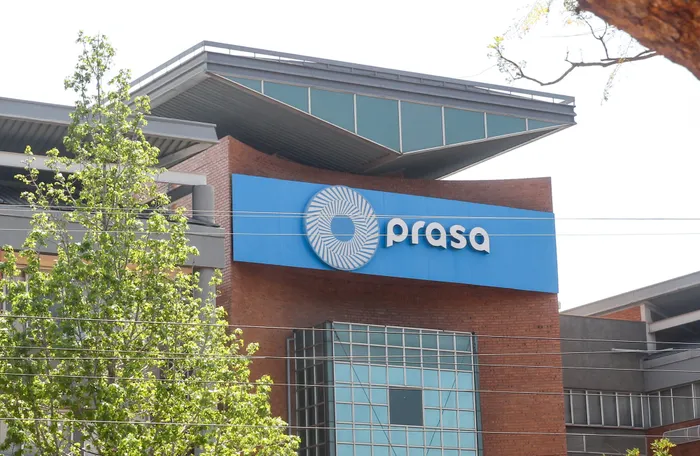PRASA Scandal Deepens: R7.5 Billion Rail Project centre of focus
ALLEGATIONS

The Prasa headquarters were raided on Wednesday.
Image: Jacques Naude/Independent Newspapers
A high-level investigation into procurement irregularities at the Passenger Rail Agency of South Africa (PRASA) has intensified, following a dramatic raid by the Hawks at the agency’s Braamfontein headquarters.
While public attention has largely focused on Maziya General Services following the release of a whistleblower report, mounting evidence now suggests that some of PRASA’s most serious procurement failures — costing taxpayers billions — may lie elsewhere. On Wednesday, the Hawks’ Specialised Commercial Crime Unit, supported by the National Prosecuting Authority’s Specialised Commercial Crime Unit, executed a search-and-seizure operation.
Laptops, mobile phones, and documents were taken from four of PRASA’s top executives: CEO Hishaam Emeran, acting chief procurement officer Asif Rehman, head of legal Nompumelelo Gamedze-Phasha, and chief financial officer Brian Alexander.
Brigadier Thandi Mambo, spokesperson for the Hawks, confirmed that the operation formed part of an ongoing investigation, but declined to comment further. “To protect the integrity of our investigation, we cannot disclose details at this time,” she said.
Sources familiar with the matter say that Maziya’s contracts went through all required internal processes, including evaluations by the Bid Evaluation Committee (BEC), Board Adjudication Committee (BAC), and the Executive.
Notably, Maziya’s work appears to be one of the few bright spots in PRASA’s recent efforts to restore passenger rail services.
Maziya has been actively involved in rehabilitating key corridors in Gauteng and the Western Cape. Trains are now running along previously dormant routes, and infrastructure upgrades are visibly in progress. In contrast, another massive PRASA project — unrelated to Maziya — valued at R7.5 billion, appears to have stalled completely.
That project, which has already consumed R2.5 billion in public funds, was meant to refurbish trains and improve network reliability. Instead, many of the trains procured remain idle, in disrepair, or have been discarded entirely.
With no clear operational outcomes, the R7.5 billion deal is increasingly viewed by insiders as one of the most costly and unproductive contracts in recent memory. Now, PRASA is reportedly exploring the option of cancelling that contract.
However, legal experts are warning that such a move could trigger far-reaching consequences.“Terminating a contract of this size and complexity isn’t something that can be done lightly,” said Mesela Nhlapo, CEO of the African Rail Industry Association.
“Even if there were procurement irregularities, the agency could face massive financial penalties or protracted litigation. These contracts often contain strict arbitration clauses and early termination fees.”
Nhlapo added that the implications for the rail industry are broader than just this case. “This is one of the biggest financial missteps in South Africa’s recent transport history. The reputational and operational damage to PRASA and the country’s commuter rail system is enormous. Investors and industry players are watching closely.”
PRASA, for its part, has acknowledged receipt of the whistleblower’s report and confirmed it will appoint an independent panel to investigate.
“The board takes the allegations seriously,” said PRASA spokesperson Andiswa Makanda. “In line with our whistleblower policy, the first step will be to appoint an independent investigator.”